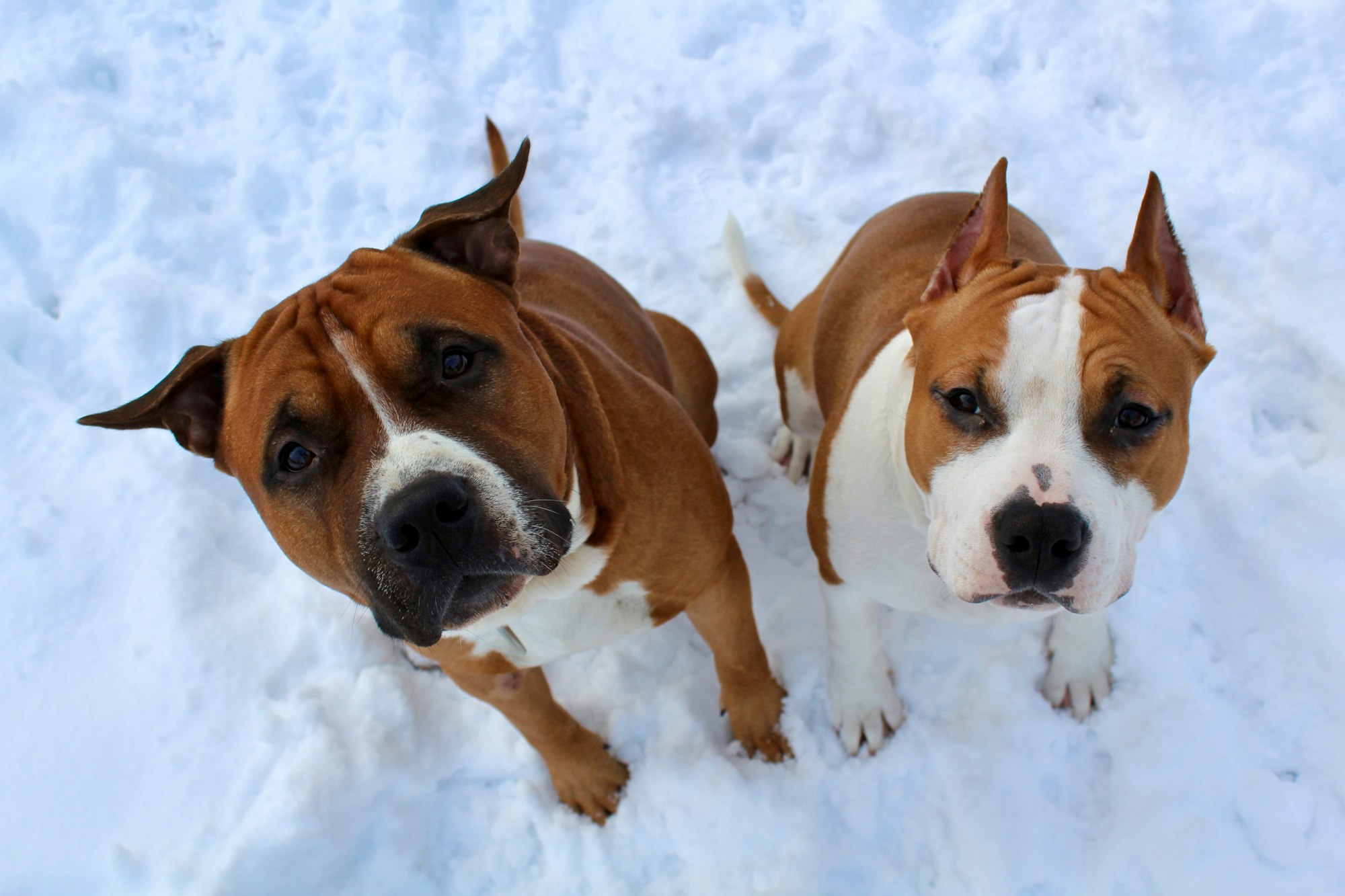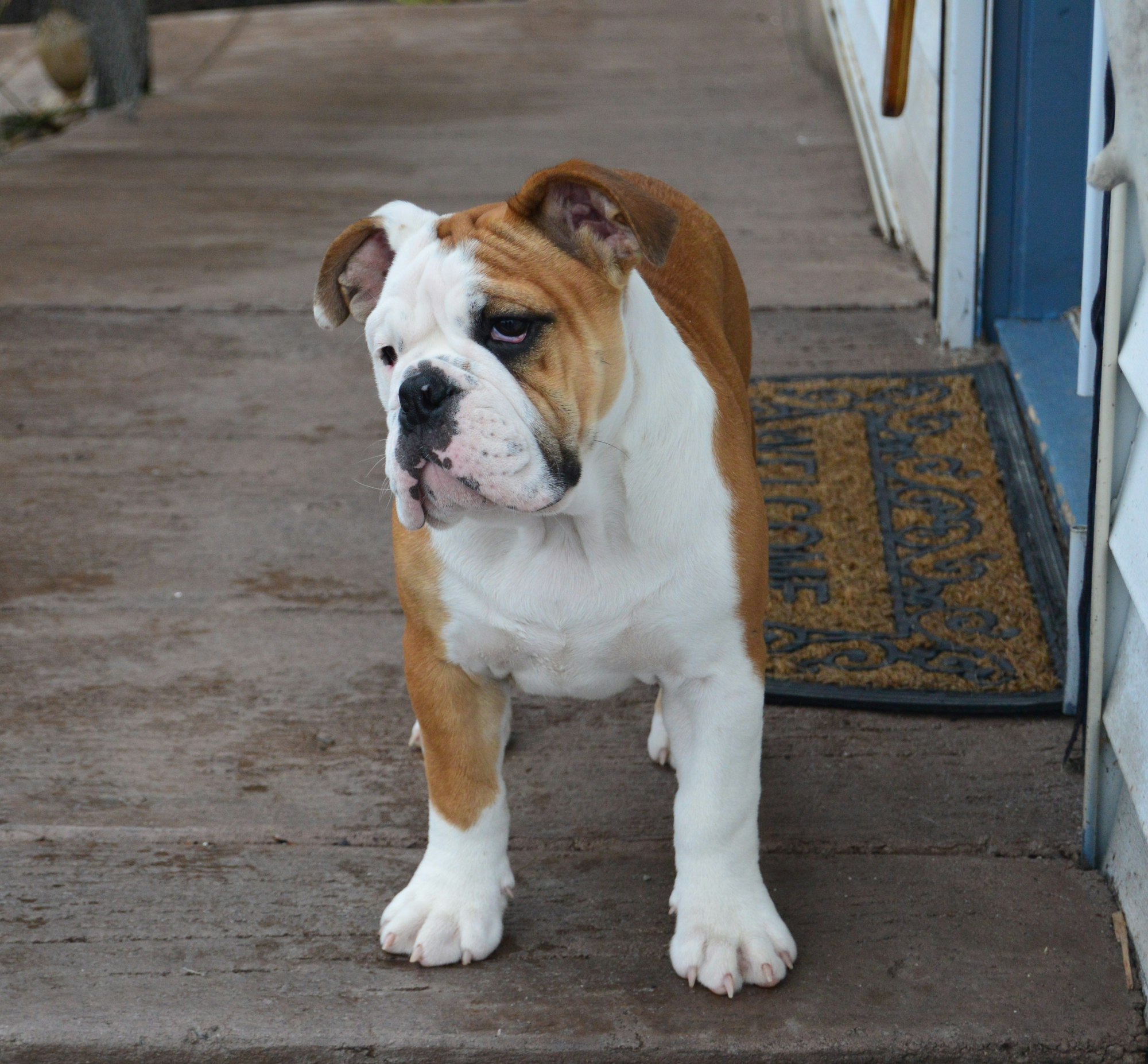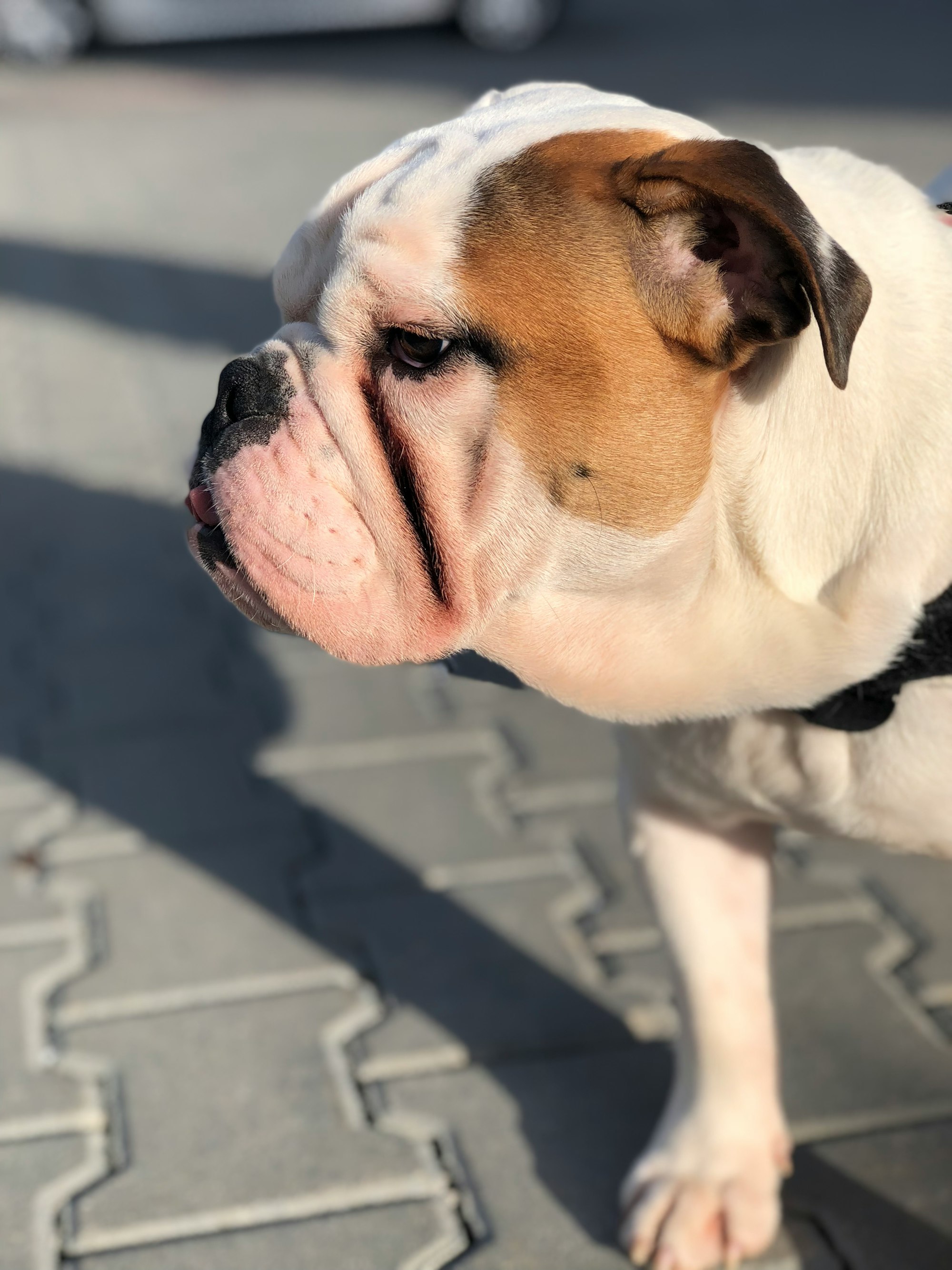Are American Bulldogs good family dogs? Many families are considering this question when searching for the perfect furry addition to their household. Known for their muscular build and strong protective instincts, American Bulldogs can indeed make wonderful companions for families.

Characteristics and Temperament of American Bulldogs
American Bulldogs are known for their distinctive appearance and strong, muscular build. They are medium to large-sized dogs with a powerful physique. Despite their imposing looks, American Bulldogs have a gentle and affectionate nature, especially towards children. Their protective instincts make them natural watchdogs, ensuring the safety of their loved ones. With proper training and socialization, American Bulldogs can thrive in a family environment.
American Bulldogs are known for their loyalty and devotion, making them excellent family pets. They form strong bonds with their human family members and are always eager to please. Their friendly and sociable nature allows them to get along well with other pets and visitors. However, it's important to note that individual temperament may vary, and early socialization is crucial for a well-rounded American Bulldog.
Benefits of Having an American Bulldog as a Family Pet
Having an American Bulldog as a family pet comes with numerous benefits. Their loving and affectionate nature makes them great companions for both adults and children. American Bulldogs are often described as ""nanny dogs"" due to their natural affinity for children. They are patient and tolerant, making them a suitable choice for families with young kids.
American Bulldogs are also highly protective of their loved ones. Their strong protective instincts make them excellent watchdogs, always alert to potential dangers. This can provide a sense of security for the entire family. Additionally, their loyalty and devotion mean that they will always be by your side, offering unwavering companionship.
Training and Socialization for American Bulldogs
Training and socialization are vital for American Bulldogs to thrive in a family setting. Early training should focus on basic obedience commands and proper behavior around children and other pets. American Bulldogs respond well to positive reinforcement techniques, such as rewards and praise. Consistency and patience are key when training an American Bulldog, as they can be strong-willed at times.
Socialization is equally important to ensure that American Bulldogs are comfortable in various situations. Introducing them to different people, animals, and environments from a young age helps them develop into well-adjusted and confident dogs. It's essential to expose them to different sights, sounds, and experiences to prevent fear or aggression towards new stimuli.
Exercise and Activity Requirements for American Bulldogs
American Bulldogs have an energetic nature and require regular exercise to stay physically and mentally stimulated. They thrive on human interaction and love being part of the family activities. Daily walks, playtime, and interactive games are essential to keep them happy and healthy. Engaging in activities that challenge their physical and mental abilities, such as obedience training, agility, or even weight pulling, can be beneficial for an American Bulldog.
Providing them with interactive dog toys and puzzles that encourage mental stimulation is also recommended. However, it's important to balance their exercise needs with their age and health conditions. Puppies may have different exercise requirements than adult American Bulldogs, and older dogs may need shorter, more frequent bursts of activity.
Health Considerations for American Bulldogs
Like any breed, American Bulldogs can be prone to certain health issues. It's essential to be aware of these potential concerns and take preventive measures to ensure their well-being. Some common health conditions that can affect American Bulldogs include hip dysplasia, allergies, skin problems, and certain types of cancer.
Regular veterinary check-ups, a balanced diet, and proper grooming can minimize the risk of these health issues. Maintaining a healthy weight is crucial to prevent strain on their joints and reduce the risk of obesity-related problems. Additionally, ensuring they receive all necessary vaccinations and preventative treatments will help protect them from common diseases and parasites.
Tips for Choosing an American Bulldog as a Family Pet
If you're considering an American Bulldog as a family pet, there are a few tips to keep in mind. Firstly, research reputable breeders or consider adopting from a rescue organization. Responsible breeders will prioritize the health and temperament of their dogs, ensuring you get a well-socialized and healthy puppy. Adopting from a rescue organization can also give a loving home to a dog in need.

When choosing an American Bulldog, observe the temperament and behavior of both the parents and the puppy. Look for signs of good health, such as clear eyes, a shiny coat, and a lively disposition. It's also important to discuss any previous health issues or genetic concerns with the breeder or rescue organization.
American Bulldog Breeders and Adoption Options
Finding a reputable American Bulldog breeder or rescue organization is essential when considering this breed. It's important to do thorough research and ask for recommendations from trusted sources. Reputable breeders will provide health clearances for their breeding dogs and ensure proper care and socialization for their puppies.
Adoption is another great option to consider. Many American Bulldogs end up in shelters or rescue organizations due to various reasons. By adopting, you not only provide a loving home for a dog in need but also support the work of these organizations. Adoption fees often cover the cost of vaccinations, spaying/neutering, and other necessary medical treatments.
American Bulldog Care and Maintenance
Proper care and maintenance are crucial for the well-being of an American Bulldog. Regular grooming is essential to keep their coat healthy and free from mats or tangles. Brushing their teeth regularly helps prevent dental issues, and routine ear cleaning can prevent infections. Nail trimming should be done as needed to avoid overgrowth and discomfort.
American Bulldogs may require a high-quality diet that suits their age, size, and activity level. Consult with your veterinarian to determine the appropriate diet and feeding schedule for your American Bulldog. Providing them with plenty of fresh water and monitoring their weight is also important for their overall health.
Comparisons with Other Family Dogs
When considering a family dog, it's natural to explore various breeds to find the perfect fit for your household. American Bulldogs stand out among popular family dog breeds, and here's how they contrast with some well-known counterparts:
Labrador Retriever
American Bulldogs:
- Sturdy build, known for strength and protective instincts.
- May exhibit territorial behavior, making them effective guard dogs.
- Require early socialization to ensure compatibility with children and other pets.
Labrador Retrievers:
- Friendly and outgoing, making them excellent family companions.
- Known for their intelligence and ease of training.
- Tend to get along well with children and other pets.
Comparison: While Labradors are renowned for their friendly demeanor and easygoing nature, American Bulldogs bring a protective instinct and strength that can be advantageous for families seeking both companionship and security.
Golden Retriever
American Bulldogs:
- Muscular build with a more robust appearance.
- May require a firmer hand in training due to their independent nature.
- Adaptable to various living conditions with proper care.
Golden Retrievers:
- Gentle and affectionate, making them ideal family pets.
- Highly trainable, known for their intelligence and eagerness to please.
- Often used as therapy and assistance dogs due to their gentle nature.
Comparison: While both breeds have their merits, American Bulldogs bring a more robust physical presence, potentially appealing to families seeking a combination of strength and affection.
Beagle
American Bulldogs:
- Larger size and more powerful stature.
- Need consistent training to manage their stubbornness.
- May exhibit protective instincts, making them effective watchdogs.
Beagles:
- Smaller in size, suitable for families with limited space.
- Known for their friendly and sociable nature.
- Require regular exercise and mental stimulation to prevent boredom.
Comparison: American Bulldogs and Beagles differ significantly in size and temperament. Families with space constraints might find Beagles more suitable, while those seeking a larger, protective dog might lean towards American Bulldogs.
Unique Qualities of American Bulldogs
Beyond comparisons with specific breeds, it's essential to appreciate the unique qualities that American Bulldogs bring to the table:
- Loyalty and Protective Instincts:
- American Bulldogs are fiercely loyal to their families and possess a natural protective instinct. This makes them not only loving companions but also effective guardians for your home.
- Adaptability:
- With the right care and attention, American Bulldogs can adapt to various living conditions. Whether you have a spacious backyard or live in an apartment, they can thrive with proper exercise and mental stimulation.
- Versatility:
- American Bulldogs excel in various roles, from family pets to guard dogs. Their versatility makes them suitable for households with different needs and preferences.
In conclusion, while American Bulldogs may have unique challenges and requirements, their distinctive qualities set them apart as valuable additions to families seeking a loyal, protective, and adaptable canine companion.
The Myths and Facts
American Bulldogs, with their impressive stature and distinct characteristics, often fall victim to misconceptions. Let's separate fact from fiction to provide a clearer understanding of these remarkable dogs.
Myth: American Bulldogs are Aggressive by Nature
Fact: While American Bulldogs have a protective instinct, labeling them as inherently aggressive is a misconception. Proper training, socialization, and positive reinforcement can channel their protective nature into a balanced and controlled behavior. They can be gentle and affectionate family members when raised in a nurturing environment.
Myth: American Bulldogs Require Intense Exercise
Fact: While American Bulldogs are energetic dogs, the notion that they need constant, intense exercise is a myth. While regular walks, playtime, and mental stimulation are essential, they are adaptable to varying activity levels. Tailoring exercise routines to their individual needs is more important than intense workouts.
Myth: American Bulldogs are Not Good with Children
Fact: American Bulldogs can be excellent companions for children when introduced and socialized early. Their loyalty often extends to the entire family, and with proper training, they can form strong bonds with children. Supervision is crucial, as with any dog breed, to ensure positive interactions.
Myth: American Bulldogs are Difficult to Train
Fact: While American Bulldogs may have an independent streak, they are not inherently difficult to train. Consistent, positive reinforcement-based training methods work well with them. Early obedience training and socialization play a significant role in shaping their behavior positively.
Myth: American Bulldogs are High-Maintenance in Grooming
Fact: Contrary to the belief that American Bulldogs are high-maintenance in grooming, they have relatively low grooming needs. Their short coat requires regular brushing and occasional baths. Routine care, such as nail trimming and dental hygiene, contributes to their overall well-being.
Myth: American Bulldogs are Suitable Only for Experienced Owners
Fact: American Bulldogs can thrive in the care of responsible and committed owners, whether experienced or not. While they benefit from consistent training and socialization, their loyalty and adaptability make them accessible to a wide range of dog owners. Understanding their needs and characteristics is key to successful ownership.
Myth: American Bulldogs are Prone to Health Issues
Fact: Like any breed, American Bulldogs may be prone to certain health issues, but this does not mean every individual will experience them. Regular veterinary check-ups, a balanced diet, and proper care contribute to their overall health. Responsible breeding practices also play a crucial role in minimizing genetic health issues.
Myth: American Bulldogs are Only Suitable for Homes with Yards
Fact: While having a yard can be beneficial for American Bulldogs to expend energy, they can adapt to apartment living with the right care. Regular exercise, interactive play, and mental stimulation are essential, regardless of living space. Access to outdoor areas for walks and activities remains important.
Myth: American Bulldogs are All the Same
Fact: American Bulldogs, like any breed, exhibit individual differences in temperament and behavior. Factors such as genetics, upbringing, and training influence their personalities. It's essential to recognize and appreciate the unique qualities of each American Bulldog as an individual.
Dispelling these myths allows prospective owners to approach American Bulldogs with accurate information, fostering a deeper understanding of the breed and promoting responsible ownership.

Conclusion
In conclusion, American Bulldogs can make great family dogs, providing love, loyalty, and protection to their loved ones. With the right training and care, they can thrive in a family environment and become cherished members of the household. Their gentle and affectionate nature, combined with their protective instincts, make them suitable companions for families with children.
Remember to choose a reputable breeder or consider adoption, and prioritize their health and socialization needs. With proper training, exercise, and care, an American Bulldog can bring joy and companionship to your family for years to come.
FAQs
- Q1: Are American Bulldogs good with children?
- A: American Bulldogs are generally good with children, but early socialization is crucial for a positive relationship.
- Q2: Do American Bulldogs require a lot of exercise?
- A: Yes, American Bulldogs have moderate to high energy levels and need regular exercise to stay healthy and happy.
- Q3: Are American Bulldogs suitable for apartment living?
- A: While they can adapt to apartment living, American Bulldogs thrive in homes with ample space and a yard.
- Q4: How do I address stubbornness in my American Bulldog?
- A: Consistent training, positive reinforcement, and patience are key to overcoming stubbornness in American Bulldogs.
- Q5: What is the lifespan of an American Bulldog?
- A: On average, American Bulldogs have a lifespan of 10 to 16 years with proper care and attention.